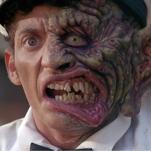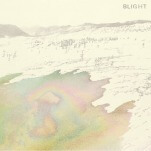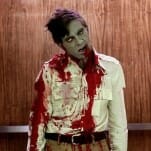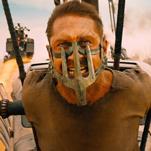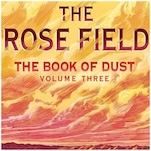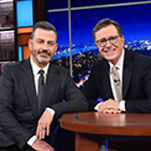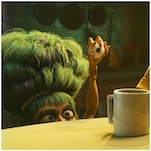The 15 Best Sci-Fi Movies on Amazon Prime (October 2025)
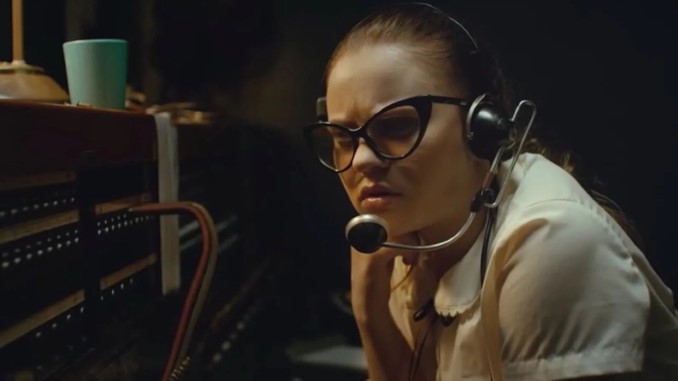
The sci-fi movie selection on Amazon Prime isn’t what it used to be, but the selections it does have are all over the map—classic sci-fi from the 1970s and ’80s, recent blockbusters, indie gems—and representative of such a dearth of quality, buttressed by butt-loads of low-budget B-movies, that browsing for the good stuff is more than difficult. We’ve dug through pages and pages of free sci-fi offerings for Amazon Prime members and found a handful worth your time, from hilarious satires to graphically violent satires, from iconic, controversial picks to a few from as recently as last year. And also, you can watch The Tomorrow War if you feel really inclined.
You may also want to consult the following, sci-fi centric lists:
The 100 best sci-fi movies of all time
The 100 best sci-fi TV shows of all time
The best sci-fi movies on Netflix
The best sci-fi movies on HBO Max
The best sci-fi movies on Hulu
Here are the 15 best sci-fi movies streaming on Amazon Prime:
1. The Host
Year: 2006
Director: Bong Joon-ho
Stars: Song Kang-ho, Byun Hee-bong, Park Hae-il, Bae Doona, Go Ah-sung
Rating: NR
Before he was breaking out internationally with a tight action film like Snowpiercer, and eventually winning a handful of Oscars for Parasite, this South Korean monster movie was Bong Joon-ho’s big work and calling card. Astoundingly successful at the box office in his home country, it straddles several genre lines between sci-fi, family drama and horror, but there’s plenty of scary stuff with the monster menacing little kids in particular. Props to the designers on one of the more unique movie monsters of the last few decades–the mutated creature in this film looks sort of like a giant tadpole with teeth and legs, which is way more awesome in practice than it sounds. The real heart of the film is a superb performance by Song Kang-ho (also in Snowpiercer and Parasite) as a seemingly slow-witted father trying to hold his family together during the disaster. That’s a pretty common role to be playing in a horror film, but the performances and family dynamic in general truly are the key factor that help elevate The Host far above most of its ilk.—Jim Vorel
2. Memories
Year: 1995
Director: Various
Rating: PG-13
After wrapping production on Akira in 1988, Katsuhiro Otomo returned in 1995 to helm his third anthology collection of short films, titled Memories. Initially scripted around the theme of the collection’s namesake, the anthology eventually yielded a series of three shorts, each directed by one of three of the most acclaimed directors working at the time, Otomo included. The collection’s first segment, “Magnetic Rose,” is unanimously praised as the anthology’s best and for good reason. Directed by Koji Morimoto and scripted by Satoshi Kon, “Magnetic Rose” is emblematic of the themes of perception, identity and uncertainty, which exemplify Kon’s work at its best, depicting the terrifying story of a deep space salvage cruise’s ensnarement in the siren wiles of an aristocratic opera singer. The anthology’s other two installments, Tensai Okamura’s “Stink Bomb” and Otomo’s “Cannon Fodder,” are worth the price of admission as well, the former a crassly comedic take on an extinction-level crisis and the latter a wartime parable animated with a intriguing Terry Gilliam-esque art style in one long take. Whatever your palate as anime film-goer, Memories is not to be missed.—Toussaint Egan
3. 10 Cloverfield Lane
Year: 2016
Director: Dan Trachtenberg
Stars: Mary Elizabeth Winstead, John Goodman, John Gallagher Jr.
Rating: PG-13
At its core, 10 Cloverfield Lane effectively works as an extended, modern-day riff on a Twilight Zone episode, a program producer J.J. Abrams holds near and dear to his heart. That’s not to say the resulting film feels like a lo-fi TV installment inorganically pumped up for the big screen. Quite the contrary, despite its enclosed setting and limited speaking parts, the film is very much a cinematic experience, with director Dan Trachtenberg (in his feature film debut) milking each interaction and set piece for maximum impact. What’s more, the script—the screenwriting debut from Josh Campbell and Matthew Stuecken alongside Whiplash writer-director Damien Chazelle—understands that sometimes the best way to raise tension is to allow it be deflated by humor (several tense sequences end with a chuckle rather than a gasp) before ramping it back up again. This well-calculated back-and-forth makes the film consistently nail-biting, yet never in a way that feels repetitive. By the time the film reaches its dramatic final stretch, the narrative has successfully escalated to a point wherein the crazier elements fit right in with the more grounded ones. —Mark Rozeman
4. The Terminator
Year: 1984
Director: James Cameron
Stars: Arnold Schwarzenegger, Linda Hamilton, Michael Biehn, Paul Winfield, Lance Henriksen
Rating: R
James Cameron’s first Terminator (and second feature) is less of a pure-popcorn action flick than its upscaled sequel, but that makes it all the more terrifying of a movie—dark, somber, replete with a silent villain who calmly plucks bits of his damaged face off to more precisely target its victims. The task in front of Kyle Reese (Michael Biehn) and Sarah Connor (Linda Hamilton) seems so insurmountable—even with a soldier from the future, going after the T-800 (Arnold Schwarzenegger, duh) with modern weapons is so ineffectual, it’s nearly comical. It’s as if Schwarzenegger is playing entropy itself—entropy seemingly a theme of The Terminator series, given the time-hopping do-overs, reboots and retreads since. You can destroy a terminator, but the future (apparently driven by box office receipts) refuses to be changed. —Jim Vorel
5. Escape From New York
Year: 1981
Director: John Carpenter
Stars: Kurt Russell, Lee Van Cleef, Ernest Borgnine, Donald Pleasence, Isaac Hayes, Harry Dean Stanton, Adrienne Barbeau
Rating: R
In the far future of 1997, when the president’s Air Force One flight is hijacked and crash-lands in the now-maximum security prison of Manhattan, there’s only one man who can save him, a one-eyed Kurt Russell who goes by the name of Snake. He struggles to thwart The Duke’s plans to use the President as a human shield in his march to freedom, all while maintaining his badass disdain for the US government. Written in the wake of the Watergate scandal, John Carpenter’s view of the future is a decidedly cynical one: Snake may be trying to save the president, but not without his classic sneer. —Sean Doyle
6. The Endless
Year: 2018
Directors: Justin Benson, Aaron Moorhead
Stars: Justin Benson, Aaron Moorhead, Callie Hernandez, Tate Ellington, Lew Temple, James Jordan
Rating: NR
Brotherhood’s a trip. Just ask Aaron Moorhead and Justin Benson, the horror filmmaking duo responsible for 2012’s Resolution, the “Bonestorm” segment in 2014’s VHS: Viral, and, in the same year, the tender creature romance Spring. Their latest, The Endless, is all about brotherhood couched in unfathomable terror of Lovecraftian proportions. The movie hinges on the petulant squabbles of boys, circular arguments that go nowhere because they’re caught in a perpetual loop of denial and projection. If the exchanges between its leads can be summed up in two words, those words are “no, you.” Boys will be boys, meaning boys will be obstinate and stubborn to the bitter end. Though, in The Endless, the end is uncertain, but maybe the title makes that a smidge obvious. Brothers Aaron and Justin Smith (played, respectively, by Moorhead and Benson, who gel so well as brothers that you’d swear they’re secretly related) were once members of a UFO death cult before escaping and readjusting to life’s vicissitudes: They clean houses for a living, subsist primarily on ramen, and rely so much on their car that Aaron’s repeated failure to replace the battery weighs on both of them like the heavens on Atlas’ shoulders. Then, out of the blue, they receive a tape in the mail from their former cultists, and at Aaron’s behest they revisit Camp Arcadia, the commune they once called home. Not all is well here: Bizarre bonelike poles litter Arcadia’s outskirts, flocks of birds teleport from one spot to another in the time it takes to blink, Aaron and Justin keep having weird déjà vu moments, and worse: There’s something in the lake, a massive, inky, inexplicable presence just below the surface. (Its image is only seen on camera once, but once is enough to make an impression.) Woven through the film’s eldritch dread are Moorhead and Benson. Their characters are locked in a cosmic struggle with a nameless adversary, but the narrative’s gaze is focused inward: On the Smiths, on brothers, on how far a relationship must stretch before it can be repaired. Intimacy is a staple element of Moorhead and Benson’s filmography. Here, the intimacy is fraternal, which perhaps speaks to how Moorhead and Benson feel about each other. They may not be brothers themselves, but you can’t spend your career making movies with the same person over and over again without developing an abiding, unspoken bond with them. —Andy Crump / Full Review
7. Turbo Kid
Year: 2015
Directors: François Simard, Anouk Whissell, Yoann-Karl Whissell
Stars: Munro Chambers, Laurence Leboeuf, Edwin Wright, Aaron Jeffrey, Michael Ironside
Rating: NR
Turbo Kid is a joyous experience, the kind of insane indie wish-fulfillment that I can only imagine inspires other indie filmmakers to say “Well if that guy can pull off this movie, then I need to make a movie of my own.” It’s a gloriously absurd ode to ’80s era kids movies, apocalypse fiction and gore-centric horror, full of neon colors and exploding heads. The hyper-bloody ultraviolence in particular is insanely impressive, on a level rarely seen outside the likes of Peter Jackson’s Dead Alive. Add a twist of Michael Ironside playing a ham-fisted parody of his villain roles in movies like Scanners (talk about exploding heads) and Total Recall, and you have a serious cult classic in the making. Turbo Kid sells itself on its premise and iconography, but it’s far better than it truly has to be. —Jim Vorel
8. The Vast of Night
Year: 2019
Director: Andrew Patterson
Starring: Sierra McCormick, Jake Horowitz
Rating: PG-13
The Vast of Night is the kind of sci-fi film that seeps into your deep memory and feels like something you heard on the news, observed in a dream, or were told in a bar. Director Andrew Patterson’s small-town hymn to analog and aliens is built from long, talky takes and quick-cut sequences of manipulating technology. Effectively a ‘50s two-hander between audio enthusiasts (Sierra McCormick and Jake Horowitz playing a switchboard operator and disc jockey, respectively) the film is a quilted fable of story layers, anecdotes and conversations stacking and interweaving warmth before yanking off the covers. The effectiveness of the dusty locale and its inhabitants, forged from a high school basketball game and one-sided phone conversations (the latter of which are perfect examples of McCormick’s confident performance and writers James Montague and Craig W. Sanger’s sharp script), only makes its inevitable UFO-in-the-desert destination even better. Comfort and friendship drop in with an easy swagger and a torrent of words, which makes the sensory silence (quieting down to focus on a frequency or dropping out the visuals to focus on a single, mysterious radio caller) almost holy. It’s mythology at its finest, an origin story that makes extraterrestrial obsession seem as natural and as part of our curious lives as its many social snapshots. The beautiful ode to all things that go [UNINTELLIGIBLE BUZZING] in the night is an indie inspiration to future Fox Mulders everywhere. —Jacob Oller
9. Donnie Darko
Year: 2001
Director: Richard Kelly
Stars: Jake Gyllenhaal, Jena Malone, Maggie Gyllenhaal, James Duval, Drew Barrymore, Mary McDonnell, Katharine Ross, Patrick Swayze
Rating: R
Apparently, at some point in its burgeoning cult ascendency, director Richard Kelly admitted that even he didn’t totally get what’s going on in Donnie Darko—going so far as to release a “Director’s Cut” in 2005 that supposedly cleared up some of the film’s more unwieldy stuff. Yet another example of a small budget wringed of its every dime, Kelly’s debut crams love, weird science, jet engines, superhero mythology, wormholes, armchair philosophy, giant bunny rabbits and Patrick Swayze (as a child molester, no less) into a film that should be celebrated for its audacity more than its coherency. It also helps that Jake Gyllenhaal leads a stellar cast, all totally game. In Donnie Darko, the only thing that’s clear is Kelly’s attitude: that at its core cinema is the art of manifesting the unbelievable, of doing what one wants to do when one wants to do it. —Christian Becker
10. Gamera, the Giant Monster
Year: 1965
Director: Noriaki Yuasa
Stars: Eiji Funakoshi, Michiko Sugata, Harumi Kiritachi, Junichiro Yamashita
Rating: NR
The initial introduction of the giant, mutated, fire-breathing turtle known and loved by folks everywhere, Gamera, the Giant Monster was movie studio Daiei Film’s obvious answer to the success of Godzilla, but it’s also the genesis point for a character that would go on to become almost equally famous, at least in Japan. Gamera may forever dwell in Godzilla’s shadow globally, but where Big G is treated with a certain level of pomp, circumstances and even dramatic gravity—particular the original Gojira and modern entries like Shin Godzilla—the Gamera series has always had a much more lighthearted tone, starting with the monster himself. Unlike the often rampaging Godzilla, Gamera has always been a more tender breed of kaiju, a valorous defender of Earth in almost all installments who is amusingly referred to as a “friend to all children.” Here, in his very first installment, Gamera is still something of a threat that needs to be contained, but he’s already found himself a little boy as a friend—the first of many to come. —Jim Vorel
11. Day of the Animals
Year: 1977
Director: William Girdler
Stars: Leslie Nielsen, Christopher George, Lynda Day George
Rating: PG
After Jaws became the first true summer blockbuster in 1975, “animals attack” films proliferated. 1976’s Grizzly was the first big success in the “Jaws on land” variants, and director William Girdler followed it up with Day of the Animals, which could probably be considered the logical zenith of the “nature attacks” premise—an all-out war of all animals vs. all humans. As in, solar radiation somehow causes every animal above 5,000 feet of elevation to go insane, attacking anything in their path. A group of hikers are menaced by all kinds of animals—mountain lions, bears, birds of prey and even pet dogs. Leslie Nielsen, five years before his career-altering comedic turn in Airplane!, appears as the primary human villain, channeling a bit of his Creepshow character from the early ’80s. It’s sort of an ugly film to watch today, but if you’ve always wanted to see a shirtless Leslie Nielsen fight a bear, it’s really your only option. Regardless, of all the films on this list, it’s the one I’d most like to see remade with a big budget. I want to see that movie, and all the killer koalas it would surely entail. —Jim Vorel
12. Death Race 2000
Year: 1975
Director: Paul Bartel
Stars: David Carradine, Sylvester Stallone, Simone Griffeth, Louisa Moritz, Don Steele
Rating: R
Definitely one of the best premises for a Roger Corman-produced film, Death Race 2000 was cinema gold waiting to happen. The story of a dystopian future where all entertainment has been made into a huge cross-country race between psychotic drivers in weapon-toting cars, its basic story has been reused in dozens of rip-offs and official remakes, including the likes of The Hunger Games. Kill Bill’s David Carradine plays the main character, “Frankenstein,” a past winner of the race and secret resistance fighter to the totalitarian government. A young Sylvester Stallone (one year before Rocky) also shows up as an antagonist, the stereotypical mobster character “Machine Gun Joe.” They must have been really struggling to figure out how they were going to get this concept across, so in the end they just strapped a pair of Tommy guns and a comically huge Bowie knife to the front of his car. That’s the type of subtlety you expect from a Roger Corman picture. —Jim Vorel
13. Chopping Mall
Year: 1986
Director: Jim Wynorski
Stars: Kelli Maroney, Tony O’Dell, John Terlesky, Russell Todd, Karrie Emerson, Barbara Crampton, Suzee Slater, Nick Segal
Rating: R
Calling Chopping Mall the best film by director Jim Wynorski isn’t saying much–at all–but it remains a minor ’80s horror/sci-fi classic despite that. The premise is irresistible pulp, dressed in ’80s neon teen fashion–a group of kids hide out in the mall past closing time so they can party (and score) in one of the furniture stores overnight. Little do they know, however, that the mall recently unveiled a new fleet of deadly efficient security robots that are, shall we say, more than a little twitchy. The cast gives us Kelli Maroney, who also appears in the similarly teen-inflected Night of the Comet, and Roger Corman regular Dick Miller as the janitor, once again playing his signature role: “that guy who gets killed in an ’80s horror movie.” It’s a desperate fight for survival as the kids face off against the robots like the zombies of Dawn of the Dead, except with much more gallows humor. Today, genre fans are likely to fondly remember Chopping Mall for the fact that it contains one of the greatest single practical effects of the era; the graphic explosion of Suzee Slater’s head, followed by the robot’s wry line of “Thank you, have a nice day.” You’ve gotta love it. —Jim Vorel
14. Galaxy of Terror
Year: 1981
Director: Bruce D. Clark
Stars: Edward Albert, Erin Moran, Ray Walston, Taafe O’Connell, Robert Englund
Rating: R
At first blush, Galaxy of Terror looks like your basic early ’80s Star Wars rip-off, quite a bit like executive producer Roger Corman’s own Battle Beyond the Stars from one year earlier. In reality, though, Galaxy of Terror is ever so much stranger (and grosser) than being a cheap imitation of anything, although there’s certainly some influence from Ridley Scott’s Alien involved … influence that would be revisited when James Cameron (production designer on Galaxy of Terror) directed Aliens five years later. As for this film, though, it’s an icky, squirmy mishmash of sci-fi and body horror elements, which sees a crew of oddball spacefarers (including Rob Zombie collaborator Sid Haig and a pre-Nightmare on Elm Street Robert Englund) crash-land on a planet, where they’re stalked and picked off by demonic creatures born of their own fears. The film’s low-budget FX are, for the most part, on the right side of endearing, but it’s the surprising amount of gore and strange death scenes that really make it memorable. Anyone who’s seen Galaxy of Terror will know that the “worm scene” in particular has gained a special sort of infamy, in a way that only implied sexual assault by a 12-foot worm monster can. In terms of recognition, Galaxy of Terror is still firmly in the cult camp, likely because it’s just too damn weird to ever escape it. —Jim Vorel
15. The Tomorrow War
Year: 2021
Director: Chris McKay
Stars: Chris Pratt, Yvonne Strahovski, J. K. Simmons, Betty Gilpin, Sam Richardson
Rating: PG-13
Within a bloated 138 minutes, director Chris McKay and writer Zach Dean attempt to cram together a coherent story involving time travel, humanity-eating aliens, forced conscription, cute science moppets, father/son & father/daughter estrangement, over-the-top action set pieces, comedy and a Vietnam allegory. You should be tired just reading that. And worse, they don’t land any of it well. Unfortunately, The Tomorrow War isn’t allowed to be the dumb, “just go with it” summer spectacle it should have been, a la Independence Day. Instead, McKay and Dean force it to be a self-aware and “smart” time-travel drama, with feelings big enough to crack generational war trauma issues, among lots of things that go “boom!” and “pew, pew, pew.” The story itself is too convoluted and speciously conceived to try to dissect without making your brain scamper to its safe place. All you need to know is that in 2022, soldiers from 30 years in our future will dramatically appear in the middle of a World Cup soccer match to tell humanity that in 11 months, aliens will overtake the planet in an extinction level event. Thus, all able-bodied people from 2022 need to prepare to go with them into the future to save our collective existence. With minimal debate, every nation creates a forced conscription draft—which yes, is kinda fascist—for a seven-day tour of duty. Only 30% ever come back, but everyone is now considered a hero and you’re saving your kids and grandkids! No one really talks about those who don’t have kids, or who aren’t patriotically predisposed to accept being cannon fodder, but that’s a silly quibble, right? Because Chris Pratt as Dan Forester is the poster guy example for what everyone should be in this story: Handsome, a Gulf War vet, a science teacher and perfect dad of a science-obsessed six-year-old daughter. To be nice, the film looks great. The aliens are intense and threatening but they’re ciphers in terms of being anything more than endless stomachs. And the cast really tries. But to quote Sam Richardson’s nerdy character Charlie when he’s forced to unload a clip into the aliens for the first time, his spontaneously screamed string of “Shit, shit, shit…” really sums this all up. —Tara Bennett




















